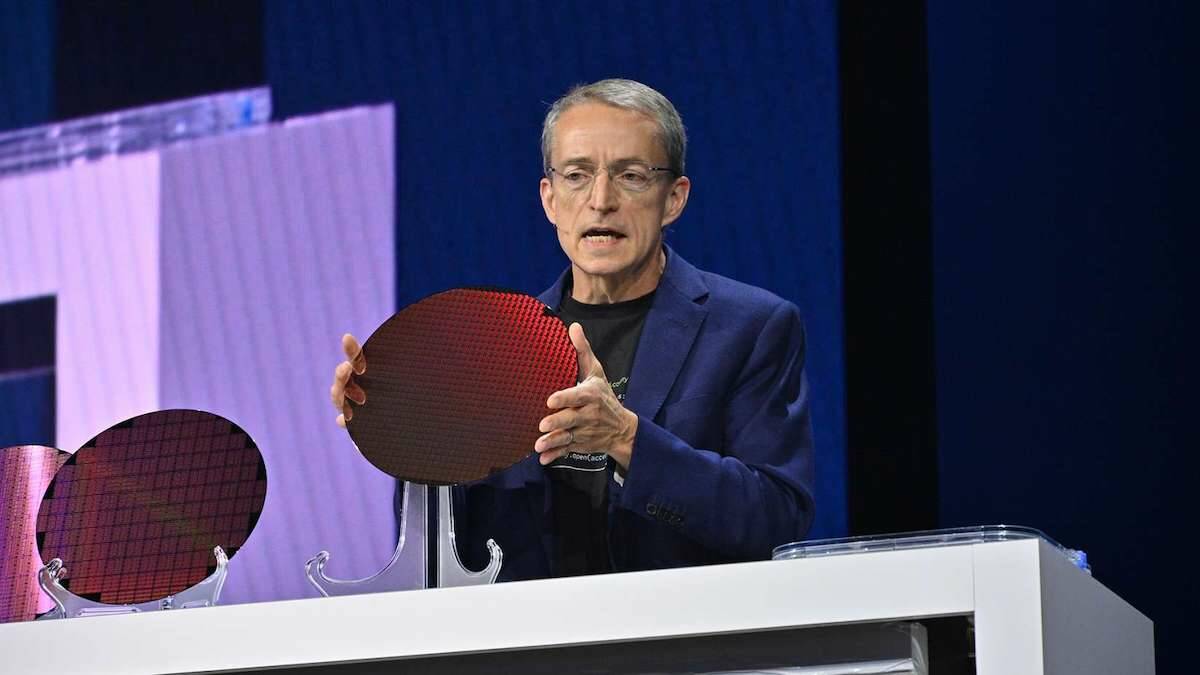Intel CEO Gelsinger Dismisses 'pretty Insignificant' Arm PC Challenge

Intel CEO Pat Gelsinger has downplayed the threat of rival chipmakers creating processors based on the Arm architecture for PCs.
"Arm and Windows client alternatives, generally they've been relegated to pretty insignificant roles in the PC business," he told analysts during the x86 giant’s Q3 earnings call Thursday.
"We take all our competition seriously, but I think history is our guide here. We don't see these as potentially being all that significant overall," he added, a sentiment somewhat at odds with Microsoft which last week cited analyst research predicting Arm's PC market share will grow from its curernt 14 percent to 25 percent by 2027.
Which seems far from "pretty insignificant".
Gelsinger's words also contrast markedly with past Intel CEO Andy Grove, who penned a book titled “Only the Paranoid Survive: How to Exploit the Crisis Points That Challenge Every Company”.
While Gelsinger doesn't see Arm as a threat, he said Intel Foundry Services is more than happy to work with chipmakers to build chips based on the architecture. "When you're thinking about other alternative architectures like Arm, we also say, 'Wow, what a great opportunity for our foundry'," he said.
To that end, the in April 2023 the chipmaker announced a strategic partnership with Arm to make it easier to produce chips on the architecture in Intel foundries.
The comments come less than a week after Intel's share price took a tumble on reports Nvidia is secretly developing an Arm-compatible CPU for the PC market that could ship as early as 2025. Nvidia has already developed CPUs using cores licensed from Arm for its Tegra mobile, Jetson edge, and Grace datacenter product lines. The report also suggested that long-time Intel rival AMD is also rumoured to be working on an Arm-based CPU of its own.
Beyond rumours, Qualcomm this week revealed a new system on chip (SoC) aimed at the PC market. Dubbed the Snapdragon X Elite, Qualcomm claims the chip will offer up to twice the performance of Intel's i7-1355U mobile processor when it arrives in the middle of 2024.
In addition to new silicon, Qualcomm is also challenging Intel for a slice of what Gelsinger has previously dubbed the AI PC market. During its Snapdragon Summit this week, Qualcomm talked up new features for running machine learning and large language models, like Meta's Llama 2 or Stable Diffusion entirely on its smartphone and laptop processors.
Despite this, Gelsinger remains confident that Intel will lead the AI PC race. "We expect in the next two years, over 100 million x86 AI-enhanced PCs in the marketplace."
- Uncle Sam orders Nvidia to cease most AI chip sales in China 'immediately'
- Qualcomm's claims its X Elite PC parts can go toe-to-toe with Apple, Intel
- Intel stock stumbles on report Nvidia is building an Arm CPU for PC market
- There's no Huawei Chinese chipmakers can fill Nvidia's shoes... anytime soon
Intel's fortunes continued to improve in the third quarter, with profits of $300 million on revenues that came in above expectations at $14.2 billion, up 10 percent from prior quarter, but down eight percent from a year ago.
While the company beat revenue guidance, and many of the company's core product divisions posted quarter-on-quarter (QoQ) growth, some remained down year-over-year (YoY), as follows:
- Client Computing Group: $7.9 billion down three percent YoY, up 16 percent QoQ
- Datacenter and AI: $3.8 billion down 10 percent YoY, down five percent QoQ
- Network and Edge: 1.5 billion down 32 percent YoY, up 7 percent QoQ
- Mobileye: $530 million up 18 percent YoY, up 16.7 percent QoQ
- Intel Foundry Services: $311 million up 299 percent YoY, up 34 percent QoQ
Intel forecast a return to historical rates of growth and revenue beginning in Q4, when the chipmaker predicted revenues of between $14.6 billion and $15.6 billion. ®
From Chip War To Cloud War: The Next Frontier In Global Tech Competition
The global chip war, characterized by intense competition among nations and corporations for supremacy in semiconductor ... Read more
The High Stakes Of Tech Regulation: Security Risks And Market Dynamics
The influence of tech giants in the global economy continues to grow, raising crucial questions about how to balance sec... Read more
The Tyranny Of Instagram Interiors: Why It's Time To Break Free From Algorithm-Driven Aesthetics
Instagram has become a dominant force in shaping interior design trends, offering a seemingly endless stream of inspirat... Read more
The Data Crunch In AI: Strategies For Sustainability
Exploring solutions to the imminent exhaustion of internet data for AI training.As the artificial intelligence (AI) indu... Read more
Google Abandons Four-Year Effort To Remove Cookies From Chrome Browser
After four years of dedicated effort, Google has decided to abandon its plan to remove third-party cookies from its Chro... Read more
LinkedIn Embraces AI And Gamification To Drive User Engagement And Revenue
In an effort to tackle slowing revenue growth and enhance user engagement, LinkedIn is turning to artificial intelligenc... Read more

